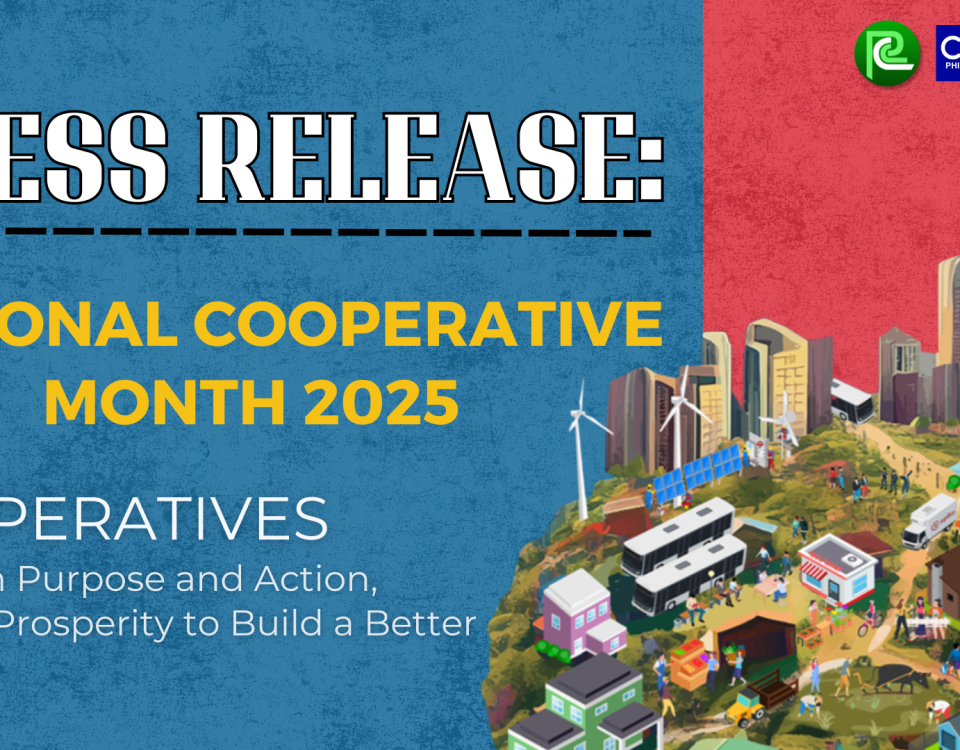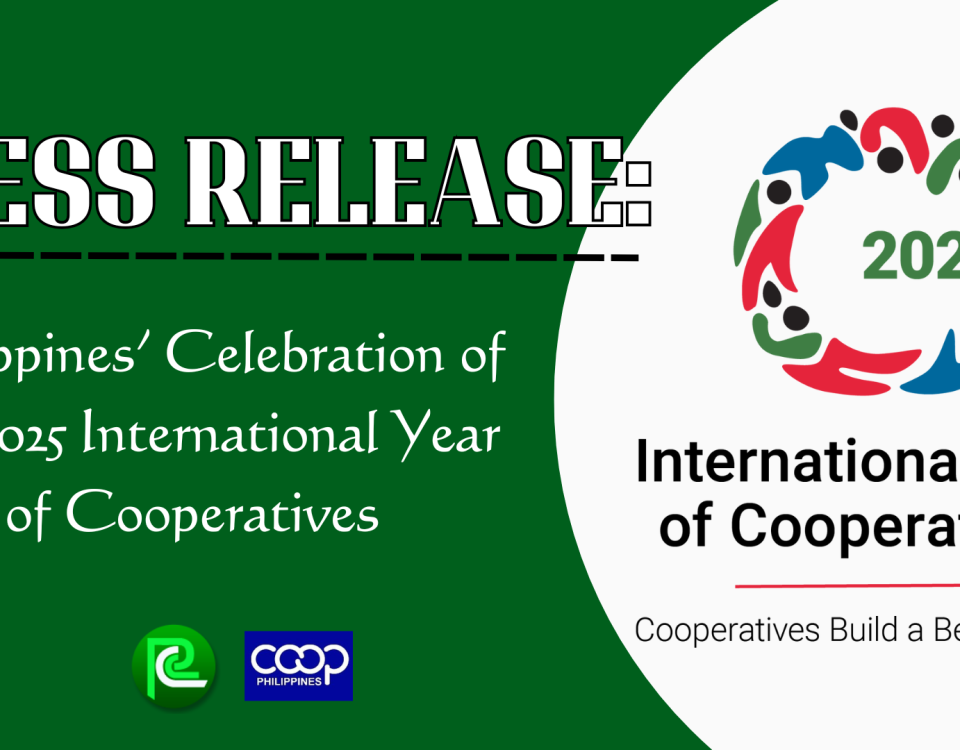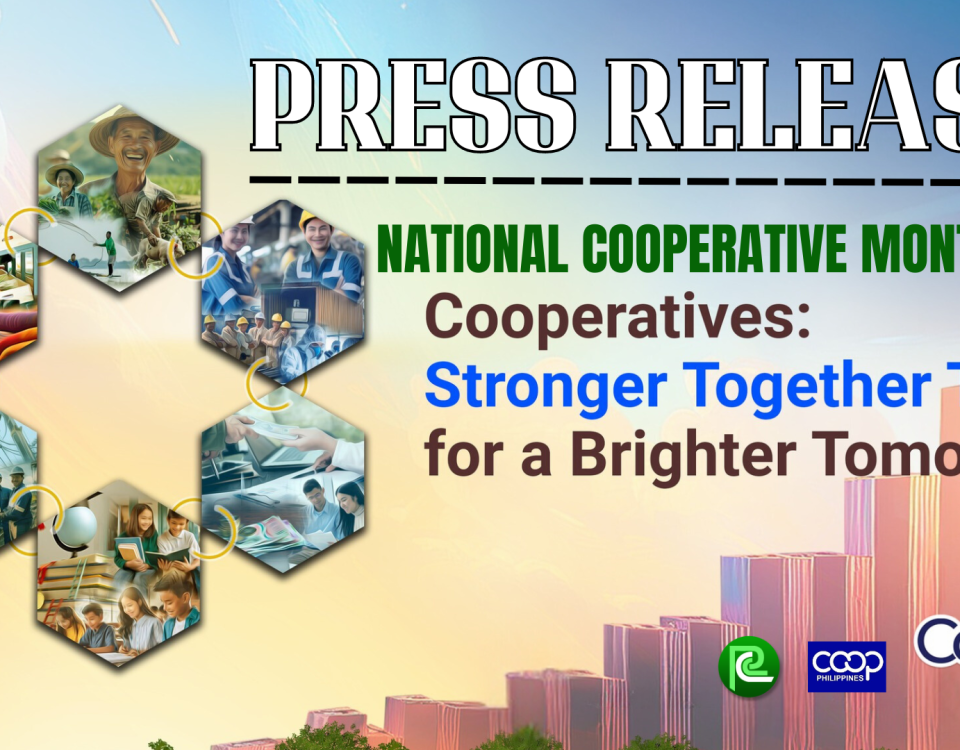
PRESS RELEASE: Labor Day Commemoration 2024
April 30, 2024
PRESS RELEASE: PCC Celebrates the National Cooperative Month 2024
October 1, 2024PRESS RELEASE
Cooperatives on Agricultural Development and Poverty Alleviation
Press Statement: State of the Nation Address of President Ferdinand “Bong Bong” Marcos Jr
President Ferdinand “Bongbong” Marcos, Jr. held his 3rd State of the Nation Address (SONA) last July 22, 2024. Among the national issues President Marcos mentioned were those related to increasing agricultural productivity, inflation in rice prices, protecting local farmers, and alleviating poverty. While the 2024 SONA is bereft of an explicit mention of cooperatives, the sector is teeming with activities and actions confronting national development issues, especially in the agricultural sector and in poverty alleviation.
During the last National Alliance of Cooperative Election of Officers, each cluster presented their projects and plans for their respective cooperative clusters. There is an ongoing push for the promotion and development of sustainable agricultural practices, improving consultation with grassroots farmers and producers, and the strengthening of the whole food value chain – production, processing-manufacturing, marketing-distribution, and consumption. All of this contributes to the establishment of a holistic and comprehensive approach to agricultural development.
The cooperative sector is at the forefront of supporting and institutionalizing sustainable agricultural practices to address climate change. In fact, big insurance cooperatives are already offering insurance encompassing the loss of production due to typhoons and disasters for agricultural products. Finance and Credit cooperatives are also offering accessible credit facilities, investment, and even pro-bono support for the development of small agricultural cooperatives.
While the scale of cooperatives’ impact may vary, cooperatives are proven sustainable poverty-alleviating institutions globally. Aside from the well-known financial mobility and accessibility that cooperatives’ facilities offer, cooperative enterprises are also tools for job generation and livelihood development. Cooperatives also offer potentially cheaper and more sustainable produce and services, alternatives to the expensive products of big corporations. Cooperatives also push for social and member accountability, as good governance is implicitly enshrined in the values and principles of cooperativism. Poverty alleviation is inherent in true cooperative models, as the community and members are at the forefront of the service and not profits.
During Cooperatives’ Day with the President last October 16, 2023, Cong. Emon Espares (COOP NATCCO Partylist Representative) and Dr. Divina Quemi (CEO of Nueva Segovia Consortium of Cooperatives and Director Philippine Cooperative Center) stated that in the fight for food security, it is necessary to have inter-sector partnerships and synergy between cooperatives and the government. Currently, the bill amending RA 9520 (Cooperative Code) is pending in the Senate. One of the priorities addressed by the amendments is the betterment of agriculture-based cooperatives. This amendment is in part due to the push of the sector for the modernization of the cooperative code and the President’s call to review and amend the cooperative code to benefit the agricultural sector of the country.
Contact persons:
Almira Cheska Garais-Guinto
09171237202
Ray John Paul Santiago
09564490166
https://ocdc.coop/resource-center/what-difference-do-cooperatives-make-philippines
https://ica.coop/en/newsroom/news/cooperatives-bringing-progress-against-poverty-across-world
https://www.researchgate.net/publication/352817378_Roles_of_Cooperatives_in_Poverty_Reduction_A_Case_
of





